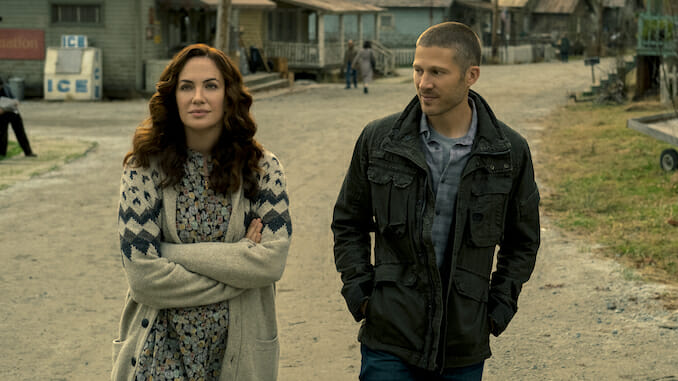Midnight Mass: On Sacrifice and Suicide
Photo Courtesy of Netflix
Editor’s Note As noted in the title, this piece contains discussions of suicide.
Netflix’s Midnight Mass means different things to different people. To some, it’s another solid entry in Mike Flanagan’s run of horror anthologies, this time pulling from vampire lore that spans from Dracula to The Lost Boys, with a bit of Faust and The Exorcist thrown in for good measure. To others, like Paste’s TV Editor Allison Keene, it’s also rare TV portrayal of “the devout beauty and horror” of Christianity at its “most honest…[and] raw.”
To me, it’s a stirring story of sacrifice… for the most part. When the small town of Crockett Island is caught up in a miraculous occurrence that proves to be more demonic than godly, the truly good people lay down their lives for the sake of others. Arguably, however, the most powerful sacrifice of the series is, in fact, a suicide.

-

-

-

-

-

-

-

-

-

-

-

-

-

-

-

-

-

-

-

-

-

-

-

-

-

-

-

-

-

-

-

-

-

-

-

-

-

-

-

-








































